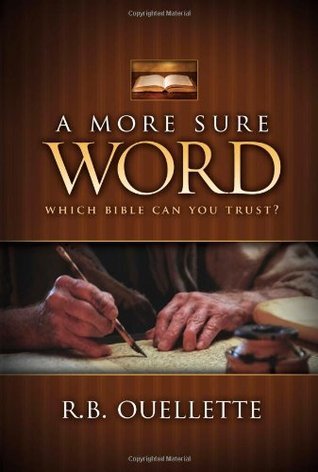What do you think?
Rate this book


216 pages, Hardcover
First published May 7, 2008
I want to have charity and grace enough to state that someone who disagrees with the position of this book could still be a biblical fundamentalist. Godly men may disagree and yet still be greatly used of the Lord.
Recent evaluation shows the reading level of the King James Bible to be fifth grade, as a whole—many individual passages would be lower. The modern Bibles are shown to be between sixth and ninth grade levels as a whole. The modern versions claim to increase readability when in reality, they often make readability more difficult.
The modern versions increase the reading difficulty of the English Bible.
Sometimes people ask the question, “Couldn’t we update the Word of God and use two for the word twain?” Would we be changing the Word of God? It is possible to update God’s Word without changing what God said. If it’s not possible now, it would not have been possible in 1611. To change twain into two would not be changing what God said. In this case, we are not dealing with concepts, we are dealing with synonymous words. Yet, there is a more pressing question that must be answered first: Do we need a new translation? I do not believe so. Friend, we have an accurate, literal translation (formal equivalency) of the Word of God from the right text in English.